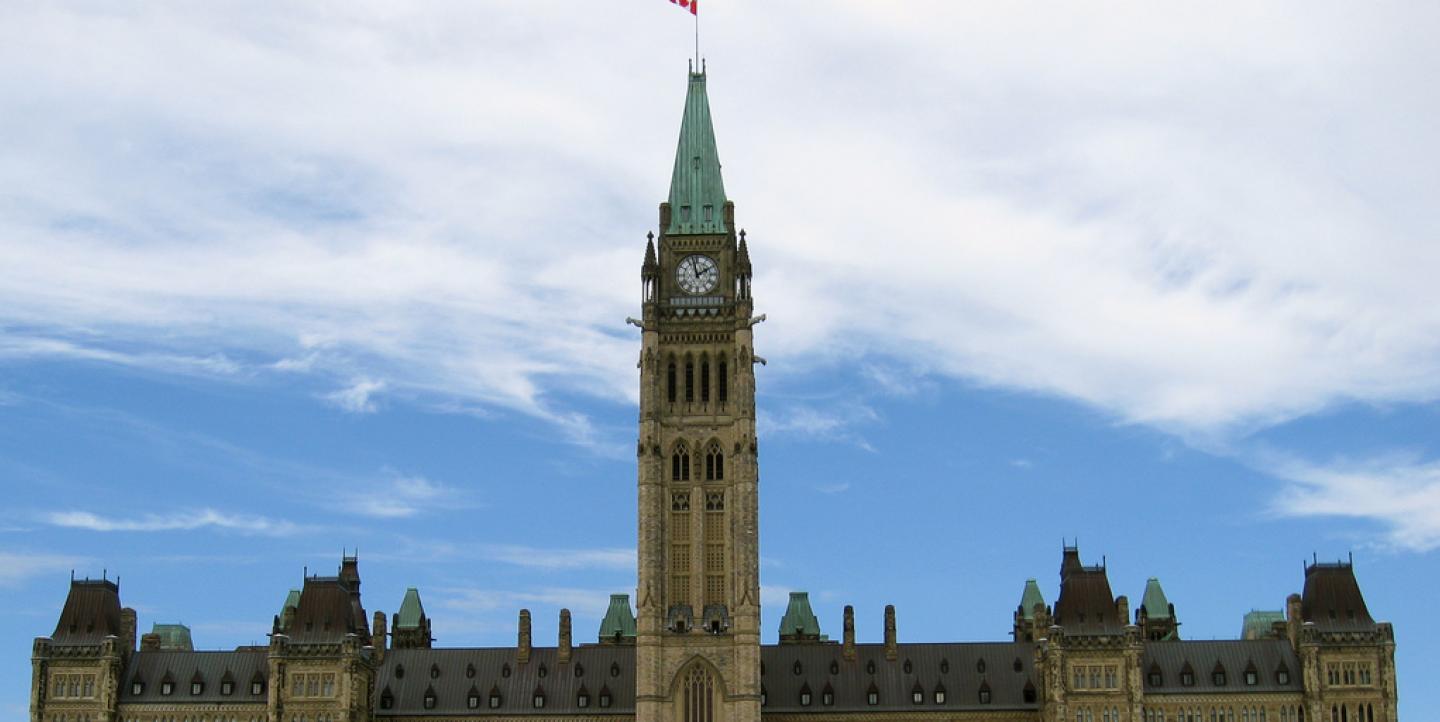In parliamentary reporting, providing context and analysis is essential.
Unlike breaking news reporting, parliamentary reporting usually requires sufficient background knowledge to make sense of proceedings. That's because the parliamentary reporter or correspondent is expected to provide adequate context and analysis as well as being able to put developments into perspective.
Respect the power of words
The word parliament comes from "parlement" - a word in Norman French meaning a conversation or a "talking". In written European records, it has been used for more than 800 years to describe gatherings to talk about affairs of state.
The forerunner of modern parliaments met in 1265 in Westminster, England. By tradition, opposing parties sat two swords length apart - they had to resolve their differences with words, not weapons. Parliament, therefore, is all about words, argument, debate. The parliamentary reporter has the special responsibility of reporting those debates to the public.
Reflect the importance of parliament
Parliaments make and modify the laws of the land. In most parliamentary systems, the executive needs the support of parliament to stay in power. A vote of no confidence in the government will usually cause it to fall. Parliament is also an important stage for the testing of arguments. And as with any stage, it can throw up moments of great drama. The parliamentary reporter witnesses, summarises and reflects all of this to the public. And if, for whatever reason, parliament becomes impotent, it is just as important to reflect that.
Know the local laws
Different legislative bodies have different rules concerning access, privilege, use of cameras and recorders and so on. Parliaments, perhaps understandably, tend to take a severe view of anyone who does not respect their rules. Familiarise yourself with these rules, otherwise you may find yourself in contempt of parliament.
The importance of getting it right
At the most obvious level, check spellings, titles, party allegiances, etc. But it is equally important to quote people correctly and summarise their arguments fairly. The public will make up their minds about the big issues of the day partly informed by what they read and hear and see in the media. Make sure they have all the information they need.
Be clear and comprehensible
Your audience should be able to understand every word and every sentence you write, immediately and without possibility of confusion. This means, in the first place, that you must be clear about what you want to say. Then you must say it simply and without ambiguity. Choose your words carefully and eliminate any possibility of misunderstanding. As the 20th-century journalist, Cyril Connolly, wrote: "Literature is the art of writing something that will be read twice; journalism what will be grasped at once."
Keep your own views out of it
A good reporter is open-minded and determined to give fair treatment to all the arguments he or she witnesses. A bad reporter lets his or her own views interfere. This is particularly true in reporting political controversy. It is not for the parliamentary reporter to decide which argument is the strongest. Instead, the good reporter lays out all the arguments, fairly and accurately, and lets the audience decide for itself.
The political context
Politicians always want to be presented in the best possible light. They will brief journalists to try to influence the way something is reported. For example, after the weekly Prime Minister’s Questions in the British Parliament, the press spokesmen for the party leaders will give journalists their own interpretation of who "won" and who "lost" the exchanges. Such briefings can be useful, but they should be treated with caution. Don’t let "spin" distort your reporting of what actually happened.
Make it interesting
Parliamentary proceedings can sometimes be dull. But they are important. So make them interesting. Capture the attention of your audience. Write clearly and simply. Engage interest with your first sentence and make the report flow naturally from there. The press fought hard, over centuries, for the right to report on the proceedings of parliaments, so don’t waste their sacrifice.
Avoid exclamation marks!
Print journalists sometimes call exclamation marks "screamers". They should be used very sparingly, if at all. The exclamation mark suggests that something is dramatic. But either the thing you’re describing is genuinely dramatic, in which case you don’t need an exclamation mark; or it is not dramatic, in which case, adding an exclamation mark will not make it so. "Prime Minister resigns!" is a worse headline than "Prime Minister resigns".
Keep a careful note
However good your memory, keep an accurate note of any parliamentary debate that you are reporting. Keep it somewhere safe. It might be needed later if your story is disputed.
This post first appeared on Media Helping Media (MHM) and is published on IJNet with permission. It originally appeared on IJNet on March 29, 2011. The author has recently updated the post, and the revised version appears above.
MHM is a training information site that provides free media resources for journalists working in transition states, post-conflict countries and areas where freedom of expression and media freedom is under threat.
Bob Eggington has been a journalist since 1969. He began in newspapers before joining the BBC where he worked for almost 30 years, including a spell as the head of the BBC's political and parliamentary unit. He was the project director responsible for launching BBC News Online in 1997. Bob currently works as a media strategy consultant in the UK and overseas.
Photo CC-licensed on Flickr via dangodin.

